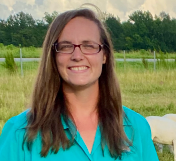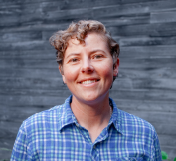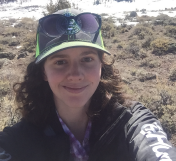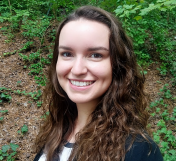Sep 10, 2020
North Carolina environmental farming fellowships awarded
North Carolina’s Center for Environmental Farming Systems (CEFS) recently named recipients of its fellowship program.
CEFS was born a out of a “conviction that land-grant-university-based research, education, and extension program focused on organic and sustainable agriculture could have a significant and essential impact in North Carolina,” according to the group’s website.
The Fellowship offers a one-year, $5,000 stipend for Master’s students and a two-year, $5,000-per-year stipend for Doctoral students. The Fellowship was developed to provide financial support and recognition for future leaders, researchers and contributors in sustainable agriculture and local food systems while they engage in academic research to further the field of study, according to a news release from CEFS.
Angel Cruz, CEFS academic and extension initiatives manager, said she was excited about the breadth of research and experiences represented in the cohort of graduate students.
“With students working in Agriculture Extension Education, Crop Science, Horticulture and Sociology, I am sure they will all learn a lot from each other,” she said in the release.
The 2020-2021 CEFS NC State Graduate Fellows and their departments/research areas are:
Sara Kidd

Sara is finishing up her Master’s degree in Agricultural and Extension Education at NC State and hopes to pursue a Ph.D. in Sustainable Agriculture or Agroecology. Before NC State, she completed her Bachelor’s degree in Environmental Studies from The University of North Carolina at Wilmington and also has an Associates’s degree in Sustainable Agriculture from Lenoir Community College. Her research is currently focused on investigating the need for apprenticeship programs for military veterans interested in agriculture and farming careers in NC. When she’s not studying you can find her working on her small farm in Nash County where she raises livestock including pastured poultry and pigs as well as Katahdin hair sheep.
Stephanie Sosinski

Stephanie is pursuing her MS degree in Crop Science while working as the research technician for the Forage and Grassland Program. Her research project focuses on nitrogen management in a crabgrass hay-production system, evaluating the effects of nitrogen application rate and source (synthetic nitrogen fertilizer and poultry litter) on forage productivity, nutritive value, and weed competition. The overall objectives of this research project are to: 1) evaluate plant and soil responses to nitrogen fertilizer rate and source in a crabgrass hay-production system and 2) assess the effects of nitrogen fertilization on weed competition for crabgrass during the establishment phase. This information will be critical towards providing livestock producers and Extension Agents with general nutrient management guidelines for crabgrass hay production that are best suited for North Carolina growing conditions.
Emilia Cordero Oceguera

Migrant farmworker women from Mexico play a crucial role in North Carolina’s food system. They contribute through their agricultural work and knowledge, as well as their food practices – when they shop for food, cook, and garden. Emilia’s dissertation research employs a participatory community-based methodology and brings together her interest in agroecology and the food practices of immigrant communities. She earned her Master’s in Latin American Studies at UC Berkeley by examining the agroecological knowledge of indigenous peasant communities in central Ecuador. Emilia is certified in Ecological Horticulture by the Center for Agroecology and Sustainable Systems (CASFS) at UC Santa Cruz and has been a farming apprentice in Mexico and Bolivia. At NC State, Emilia is a member of the Sustainable Agriculture Graduate Student Association (SAGSA) and instructor of the Food and Society course in the Sociology Department. She also volunteers at farmworker support organizations in rural North Carolina. With her research, Emilia seeks to provide evidence for the need of a sustainable and socially just food system.
Amanda Lay

Amanda Lay is a North Carolina native and is passionate about the production systems that we use to grow fresh produce. Her research focuses on pre-plant fertilizer in strawberry production. Pre-plant fertilizer is applied before strawberries are planted and supports their growth through the winter. Her research investigates different rates of standard fertilizer and low nitrogen organic fertilizer. The project tracks pre-plant nitrogen movement in the soil, yield, and studies berry quality after harvest. Amanda’s career goal is to continue research in production systems, making them more efficient for farmers and safer for the environment.
Lais Bastos Martins

Lais is a Ph.D. student at North Carolina State University and her research focuses on breeding winter cover crops and understanding cover crop seed marketing. She is passionate about collaborative work and bringing people from different backgrounds towards a common goal. In her research, she works in the Cover Crop Breeding Network (www.covercropbreeding.com) as the winter pea lead and is investigating how different winter pea lines (potential new cultivars) perform across the U.S. and which areas are similar enough that the same cultivar could be used. She is also researching the genetic basis of winter pea resistance to Ascochyta blight, a disease that affects peas everywhere they are grown, but especially in NC. One of the things she likes the most in her Ph.D. is having collaborators across multiple states and knowing that her research will improve cover crop options for farmers. Before she started her Ph.D. Lais completed her M.S. at NC State researching multiple disease resistance in corn.
The CEFS North Carolina State University (NC State) Graduate Fellowship Program was made possible by an endowment from the W.K. Kellogg Foundation and Blue Cross and Blue Shield of North Carolina Foundation.
For more information about the CEFS NC State Graduate Fellows Program, please visit the CEFS website.






